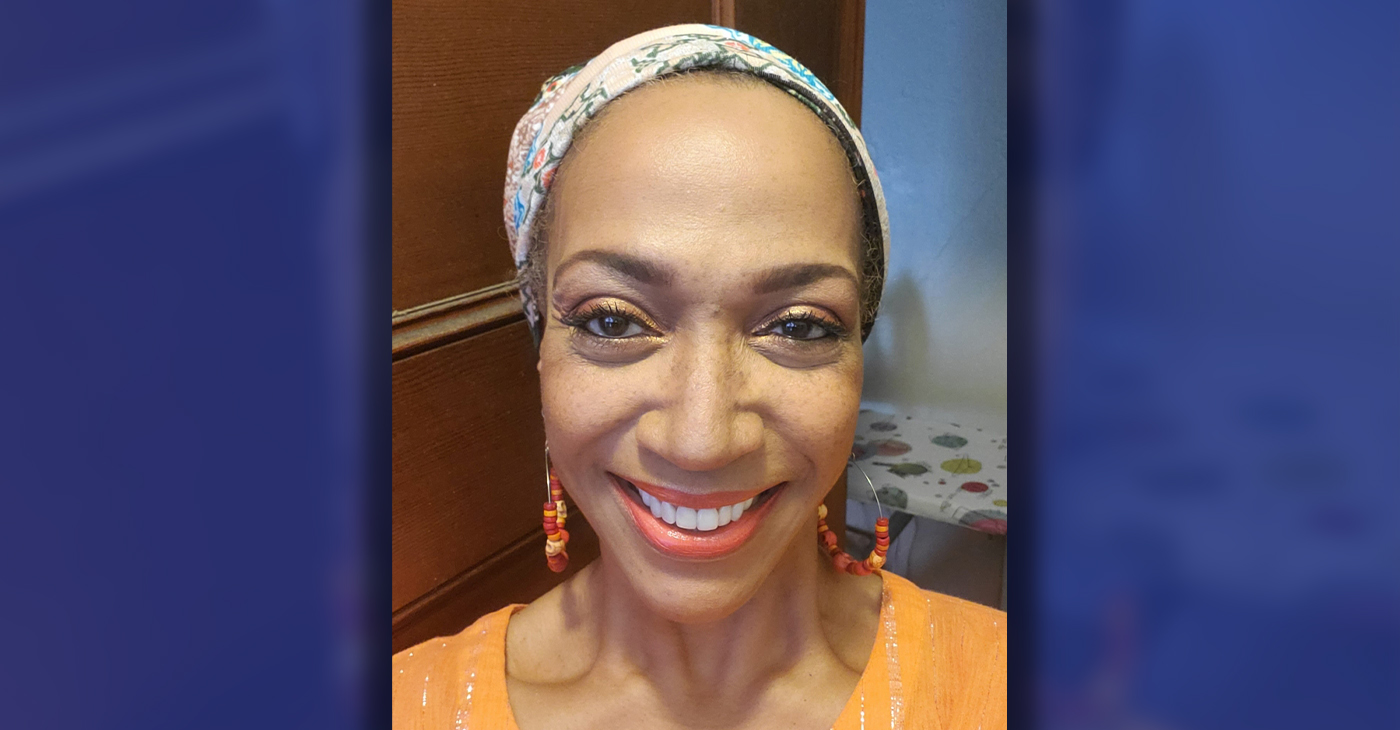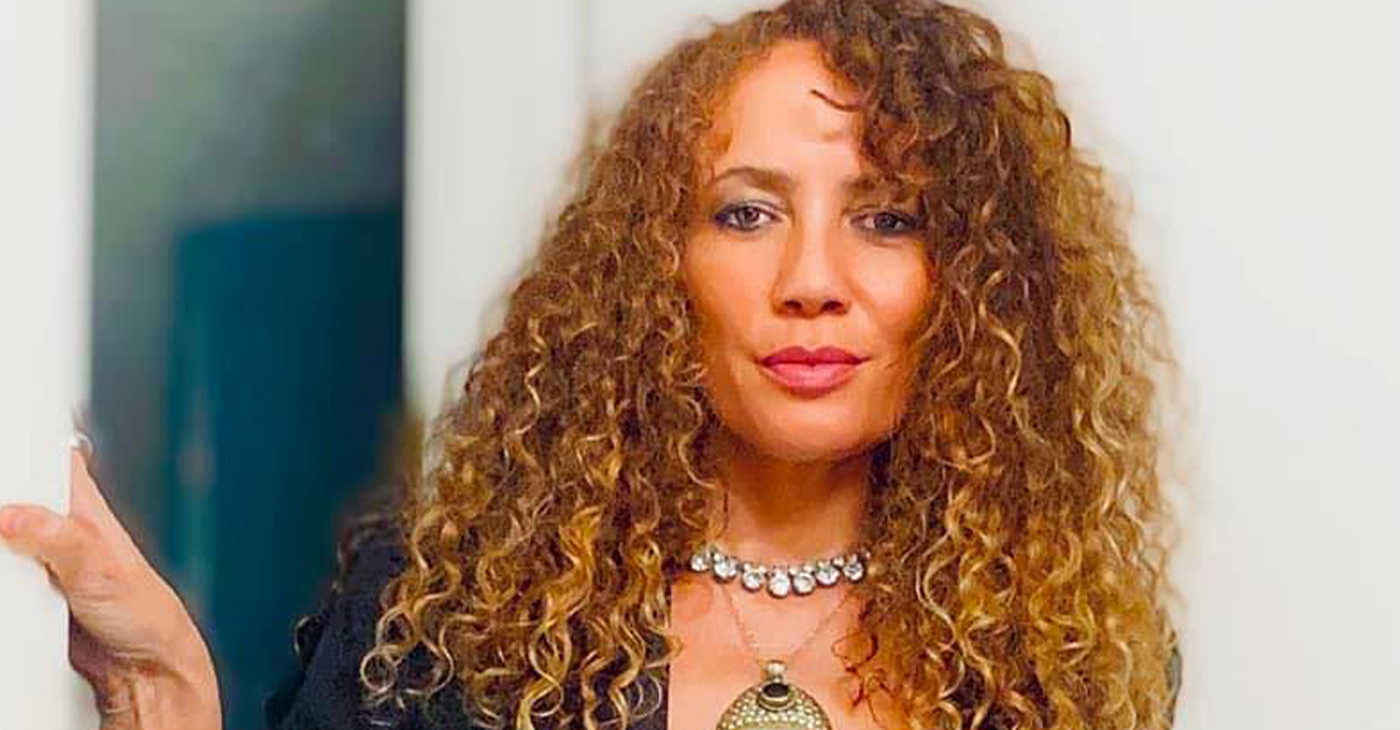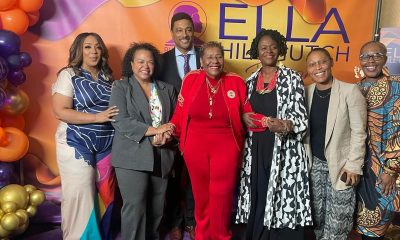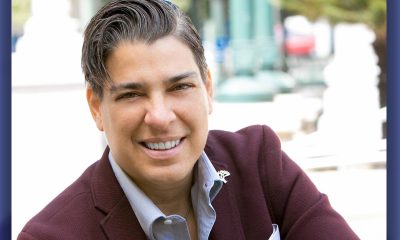Bay Area
PG&E Increases Rates While Bay Area Households Are Struggling to Stay Afloat
Prior to the pandemic, less than 2% of callers were asking for utility assistance, but in the last year that percentage has grown to 8.2%, according to Eden I&R data. Oakland made up 40% of the calls to 211, with Black and Latino individuals and single parents making up the majority of the callers. Female callers made up over double that of male callers and most ranged from 25 to 64 years old.

By Magaly Muñoz
The cost of living is growing as millions of California customers will soon start to see the effects of PG&E raising their rates after a case ruling that will hike up monthly utility bills and ultimately raise the cost of living for struggling residents.
The California Public Utilities Commission (CPUC) agreed in November to a request by the electric company for $13.5 billion for wildfire system enhancement and undergrounding, vegetation management, and capacity upgrades.
Starting Jan. 1, residents will see a nearly $33 increase in their upcoming electric and natural gas bill.
Mark Toney, Executive Director of The Utility Reform Network (TURN), an advocacy group, said that low-income families would be most affected by the change.
“I like to say we want the most green for the least green, and the cost of ‘greening the grid’ should not be cutting off low-income families of color from the grid because the monthly bills are too doggone high,” Toney said.
Toney said he was worried that if the cost of utilities continues to increase, some families would be unable to make their payments and would therefore, lose power.
If families choose cost-saving alternatives like using candles, the potential for a fire rises if families with small children accidentally knock something over and don’t put it out in time. People also rely on medical devices for health-related reasons to be hooked up for long periods of time, which could contribute to high costs in electricity bills.
Some Bay Area residents are already struggling to pay their utility bills.
Longtime Oakland resident, Rev. Dr. Barbara Jim-George has found herself using odd, potentially dangerous, alternatives to using her central heat, such as leaving open a hot oven to warm her living room because her apartment is “like a walk-in freezer.”
The CDC has warned against using this method to heat up your home as it can disperse dangerous pollutants and gasses, like carbon monoxide, and worsen already existing lung diseases.
“I can leave something sitting out on my table at night and it’s just fine as it would be in the refrigerator,” Jim-George said.
She had retired from her job in 2014 and was living on a tight budget for a few years until she found herself back at work in 2018 because her social security checks weren’t enough to pay bills.
As the cold and rainy weeks persist, the reverend anticipates a higher utility bill in the mail soon.
Jim-George shared that she had a cousin who lost their home in the Camp Fire of 2018, the deadliest and most destructive wildfire in California’s history, and blamed PG&E for not learning from these tragedies to do what was best for customers.
“They [PG&E] should have buried lines long ago because we’re eating the cost for [their mistakes]. I think it’s negligent on their side to not have had the foresight to understand the issues beforehand,” Jim-George said.
While the reverend is one of many who will have to resort to budgets and taking on second jobs in order to keep up with high housing bills, organizations across the area have seen a large intake of housing and emergency needs for decades, increasing with the effects of the pandemic in the last four years.
The need for utility assistance has grown exponentially, with four times the amount of calls coming in about families who have been without energy or are months behind in bills and are at risk of losing power in their homes.
“Housing [and related needs] remains our top concern for callers calling 211,” Allison DeJung said.
DeJung is the Executive Director of Eden I&R, which operates the calls and messages from 211 Bay Area- a multilingual 24/7 information hotline that connects callers with resources in Alameda County.
She said that in the last fiscal year, her team received over 69,000 calls and they made about 113,000 referrals to programs and organizations in the county for issues related to housing, utilities, food assistance and more.
Prior to the pandemic, less than 2% of callers were asking for utility assistance, but in the last year that percentage has grown to 8.2%, according to Eden I&R data. Oakland made up 40% of the calls to 211, with Black and Latino individuals and single parents making up the majority of the callers. Female callers made up over double that of male callers and most ranged from 25 to 64 years old.
DeJung said most callers looking for help paying their utility services were connected to Spectrum Community Services.
Spectrum is a nonprofit organization that has financially assisted low-income families and individuals through utility, water, and food aid since 1971.
Last year they received nearly 10,000 applications for their Low Income Home Energy Assistance Program (LIHEAP), which helps households pay overdue energy bills. The organization was only able to help 5,000 of those applicants.
Black households, similar to data from Eden I&R, were the majority of applicants for utility assistance at Spectrum, along with the majority of assistance coming from Oakland residents.
Lara Calvert, Executive Director of Spectrum Community Services, said the lack of funding is the primary reason they have to turn away applicants.
Assistance can be granted once every 12 months, with a cap of $3000 in overdue bills. Calvert said the large cap is what also contributes to helping less people every year because if multiple people apply for large quantities of assistance, funding runs out quicker.
Spectrum prioritizes households that have people who are over 60, anybody who’s disabled in the home, people who have children five years or younger, as well as people with a higher overall energy burden for their home.
A high energy burden is when a family’s energy or utility bills take up the majority of a household’s monthly income, making it difficult to maintain a sustainable quality of life.
Calvert shared that although the beginning of the pandemic brought more attention to the organization, 2023 was the largest year for residents asking for assistance from the program and it doesn’t look like it’s going to slow down soon.
“We are anticipating continuing to have a large number of people seeking assistance this year that will far outstrip our amount of money that we have to give out,” Calvert said.
Activism
Books for Ghana
We effectively facilitated cross-continent community building! We met the call and provided 400 books for ASC’s students at the call of the Minister of Education. We supported the work of a new African writer whose breakout novel is an action-packed depiction of a young woman steeped in Ghanaian culture who travels to the USA for college, all the while experiencing the twists, turns, and uncertainties that life brings.

By Min. Rauna Thurston, Chief Mpuntuhene Afua Ewusiwa I
My travels to Afrika began in June 2022, on a tour led by Prof. Manu Ampim, Director of the organization Advancing The Research. I was scheduled to become an ordained Minister by Wo’se Community of the Sacred African Way. It was vital that my feet touch the soil of Kemet and my spirit connect with the continent’s people before ordination.
Since 2022, I’ve made six trips to Afrika. During my travels, I became a benefactor to Abeadze State College (ASC) in Abeadze Dominase, Ghana, originally founded by Daasebre Kwebu Ewusi VII, Paramount Chief of Abeadze Traditional Area and now run by the government. The students there were having trouble with English courses, which are mandatory. The Ghanaian Minister of Education endorsed a novel written by 18-year-old female Ghanaian first-time writer, Nhyira Esaaba Essel, titled Black Queen Sceptre. The idea was that if the students had something more interesting to read, it would evoke a passion for reading; this seemed reasonable to me. Offer students something exciting and imaginative, combined with instructors committed to their success and this could work.
The challenge is how to acquire 800 books?!
I was finishing another project for ASC, so my cash was thin and I was devoid of time to apply for annual grants. I sat on my porch in West Oakland, as I often do, when I’m feeling for and connecting to my ancestors. On quiet nights, I reminisce about the neighborhood I grew up in. Across the street from my house was the house that my Godfather, Baba Dr. Wade Nobles and family lived in, which later became The Institute for the Advanced Study of Black Family Life & Culture (IASBFLC). Then, it came to me…ancestors invited me to reach out to The Association of Black Psychologists – Bay Area Chapter (ABPsi-Bay Area)! It was a long shot but worth it!
I was granted an audience with the local ABPsi Board, who ultimately approved funding for the book project with a stipulation that the Board read the book and a request to subsequently offer input as to how the book would be implemented at ASC. In this moment, my memory jet set to my first ABPsi convention around 2002, while working for IASBFLC. Returning to the present, I thought, “They like to think because it feels good, and then, they talk about what to do about what they think about.” I’m doomed.
However, I came to understand why reading the book and offering suggestions for implementation were essential. In short: ABPsi is an organization that operates from the aspirational principles of Ma’at with aims of liberating the Afrikan Mind, empowering the Afrikan character, and enlivening: illuminating the Afrikan spirit. Their request resulted in a rollout of 400 books in a pair-share system. Students checked out books in pairs, thereby reducing our bottom line to half of the original cost because we purchased 50% fewer units. This nuance promoted an environment of Ujima (collective work & responsibility) and traditional Afrikan principles of cooperation and interdependence. The student’s collaborative approach encouraged shared responsibility, not only for the physical book but for each other’s success. This concept was Dr. Lawford Goddard’s, approved by the Board, with Dr. Patricia “Karabo” Nunley at the helm.
We effectively facilitated cross-continent community building! We met the call and provided 400 books for ASC’s students at the call of the Minister of Education. We supported the work of a new African writer whose breakout novel is an action-packed depiction of a young woman steeped in Ghanaian culture who travels to the USA for college, all the while experiencing the twists, turns, and uncertainties that life brings. (A collectible novel for all ages). A proposed future phase of this collaborative project is for ASC students to exchange reflective essays on Black Queen Sceptre with ABPsi Bay Area members.
We got into good trouble. To order Black Queen Sceptre, email esselewurama14@gmail.com.
I became an ordained Minister upon returning from my initial pilgrimage to Afrika. Who would have imagined that my travels to Afrika would culminate in me becoming a citizen of Sierra Leone and recently being named a Chief Mpuntuhene under Daasebre Kwebu Ewusi VII, Paramount Chief of Abeadze Traditional Area in Ghana, where I envision continued collaborations.
Min. Rauna/Chief Mpuntuhene is a member of ABPsi Bay Area, a healing resource committed to providing the Post Newspaper readership with monthly discussions about critical issues in Black Mental Health, Wealth & Wellness. Readers are welcome to join us at our monthly chapter meetings every 3rd Saturday via Zoom and contact us at bayareaabpsi@gmail.com.
Activism
2024 in Review: Seven Questions for Frontline Doulas
California Black Media (CBM) spoke with Frontline Doulas’ co-founder Khefri Riley. She reflected on Frontline’s accomplishments this year and the organization’s goals moving forward.

By Edward Henderson, California Black Media
Frontline Doulas provides African American families non-medical professional perinatal services at no cost.
This includes physical, emotional, informational, psychosocial and advocacy support during the pregnancy, childbirth and postpartum period. Women of all ages — with all forms of insurance — are accepted and encouraged to apply for services.
California Black Media (CBM) spoke with co-founder Khefri Riley. She reflected on Frontline’s accomplishments this year and the organization’s goals moving forward.
Responses have been edited for clarity and length.
Looking back at 2024, what stands out to you as your most important achievement and why?
In 2024, we are humbled to have been awarded the contract for the Los Angeles County Medical Doula Hub, which means that we are charged with creating a hub of connectivity and support for generating training and helping to create the new doula workforce for the medical doula benefit that went live in California on Jan. 1, 2023.
How did your leadership and investments contribute to improving the lives of Black Californians?
We believe that the revolution begins in the womb. What we mean by that is we have the potential and the ability to create intentional generational healing from the moment before a child was conceived, when a child was conceived, during this gestational time, and when a child is born.
And there’s a traditional saying in Indigenous communities that what we do now affects future generations going forward. So, the work that we do with birthing families, in particular Black birthing families, is to create powerful and healthy outcomes for the new generation so that we don’t have to replicate pain, fear, discrimination, or racism.
What frustrated you the most over the last year?
Working in reproductive justice often creates a heavy burden on the organization and the caregivers who deliver the services most needed to the communities. So, oftentimes, we’re advocating for those whose voices are silenced and erased, and you really have to be a warrior to stand strong and firm.
What inspired you the most over the last year?
My great-grandmother. My father was his grandmother’s midwife assistant when he was a young boy. I grew up with their medicine stories — the ways that they healed the community and were present to the community, even amidst Jim Crow.
What is one lesson you learned in 2024 that will inform your decision-making next year?
I find that you have to reach for your highest vision, and you have to stand firm in your value. You have to raise your voice, speak up and demand, and know your intrinsic value.
In a word, what is the biggest challenge Black Californians face?
Amplification. We cannot allow our voices to be silent.
What is the goal you want to achieve most in 2025?
I really would like to see a reduction in infant mortality and maternal mortality within our communities and witness this new birth worker force be supported and integrated into systems. So, that way, we fulfill our goal of healthy, unlimited birth in the Black community and indeed in all birthing communities in Los Angeles and California.
Activism
U.S. House Minority Leader Hakeem Jeffries Speaks on Democracy at Commonwealth Club
Based on his first speech as House minority leader, “The ABCs of Democracy” by Grand Central Publishing is an illustrated children’s book for people of all ages. Each letter contrasts what democracy is and isn’t, as in: “American Values over Autocracy”, “Benevolence over Bigotry” and “The Constitution over the Cult.”

By Linda Parker Pennington
Special to The Post
House Minority Leader Hakeem Jeffries addressed an enthusiastic overflow audience on Monday at San Francisco’s Commonwealth Club, launching his first book, “The ABCs of Democracy.”
Based on his first speech as House minority leader, “The ABCs of Democracy” by Grand Central Publishing is an illustrated children’s book for people of all ages.
Each letter contrasts what democracy is and isn’t, as in: “American Values over Autocracy”, “Benevolence over Bigotry” and “The Constitution over the Cult.”
Less than a month after the election that will return Donald Trump to the White House, Rep. Jeffries also gave a sobering assessment of what the Democrats learned.
“Our message just wasn’t connecting with the real struggles of the American people,” Jeffries said. “The party in power is the one that will always pay the price.”
On dealing with Trump, Jeffries warned, “We can’t fall into the trap of being outraged every day at what Trump does. That’s just part of his strategy. Remaining calm in the face of turmoil is a choice.”
He pointed out that the razor-thin margin that Republicans now hold in the House is the lowest since the Civil War.
Asked what the public can do, Jeffries spoke about the importance of being “appropriately engaged. Democracy is not on autopilot. It takes a citizenry to hold politicians accountable and a new generation of young people to come forward and serve in public office.”
With a Republican-led White House, Senate, House and Supreme Court, Democrats must “work to find bi-partisan common ground and push back against far-right extremism.”
He also described how he is shaping his own leadership style while his mentor, Speaker-Emeritus Nancy Pelosi, continues to represent San Francisco in Congress. “She says she is not hanging around to be like the mother-in-law in the kitchen, saying ‘my son likes his spaghetti sauce this way, not that way.’”
-

 California Black Media4 weeks ago
California Black Media4 weeks agoCalifornia to Offer $43.7 Million in Federal Grants to Combat Hate Crimes
-

 Black History4 weeks ago
Black History4 weeks agoEmeline King: A Trailblazer in the Automotive Industry
-

 California Black Media4 weeks ago
California Black Media4 weeks agoCalifornia Department of Aging Offers Free Resources for Family Caregivers in November
-

 California Black Media4 weeks ago
California Black Media4 weeks agoGov. Newsom Goes to Washington to Advocate for California Priorities
-

 Activism3 weeks ago
Activism3 weeks agoOakland Post: Week of November 27 – December 3, 2024
-

 Activism4 weeks ago
Activism4 weeks agoOCCUR Hosts “Faith Forward” Conference in Oakland
-

 Activism4 weeks ago
Activism4 weeks agoRichmond Seniors Still Having a Ball After 25 Years
-

 Bay Area4 weeks ago
Bay Area4 weeks agoRichmond’s New Fire Chief Sworn In























































